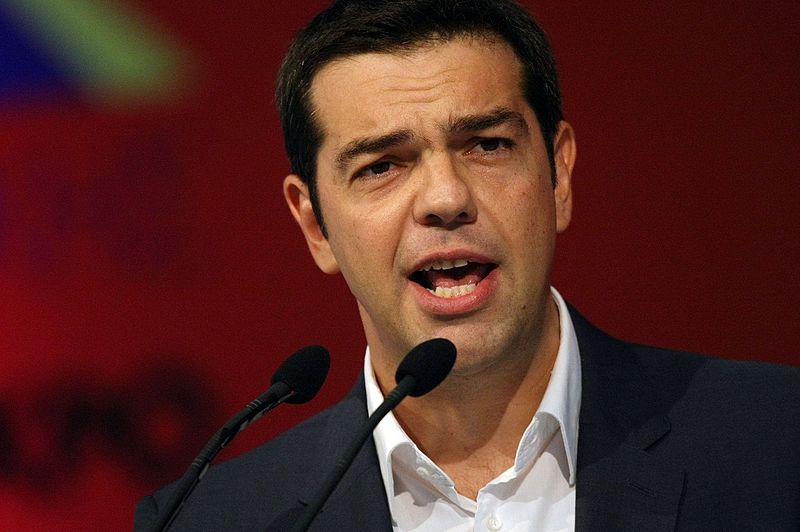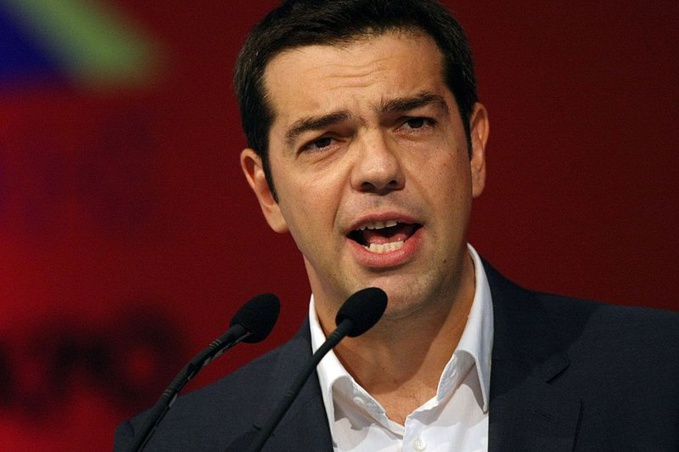One of the reasons for this step is that Athens is likely to complete the current bailout program in August, on time. Another thing is that the economy is growing, although slower than expected.
Yet, Tsipras is sensing growing pressure within the country. His unlikely coalition with the Independent Greeks, a small populist party headed by Panos Kammenos, is under risk of falling apart.
The Minister of Defense Kammenos opposes attempts of Tsipras to resolve the 25-year-old dispute over how to name the poor northern neighbor of Greece, officially known as the Former Yugoslav Republic of Macedonia. Kammenos also disagreed with Syriza on how to cope with the last conflict over the policy of challenging the sovereignty of Greece in a number of Aegean islands between Greece and its historical rival, Turkey.
Perhaps, Tsipras hoped to get distracted from these problems. Syriza began a parliamentary investigation of ten high-ranking politicians, including two former prime ministers Antonis Samaras and Panagiotis Pikrammenos, the current head of the central bank and EU commissioner. Politicians are accused of taking bribes in total for the amount of 50 million euros from the Swiss pharmaceutical company Novartis in the period from 2010 to 2015.
However, the scandal did not gain momentum after the indignant refutations of the accused and rumors about the government's influence on the judicial process. Opposition members of the general party committee believe that allegations of bribery could have been faked. They are based on the testimony of three anonymous informants operating under the scheme for the protection of witnesses.
Tsipras's reasoning about economic success also looks rather weak. Last year, the economy grew by only 1.4% compared to the forecast of 2.5%. This year, the growth rate has already been reduced to about 2%.
The prime minister's hopes for a clean exit from the bailout in August also look unrealistic. Greece has already committed to lower the income tax threshold and to conduct another round of pension cuts in 2019. The EU agreement on debt relief, to be completed in June, will include many conditions for reform and prevention of retreat. Some scientists predict that Tsipras will reduce its losses to a minimum and will appoint elections in October, almost a year before the expiration of his term. The center-right party New Democracy leads in opinion polls at 10 p.p.
Chances of New Democracy to get a majority of votes depends on how many voters from smaller parties can leave Syriza. Meanwhile, Tsipras's advisors insist that their head cannot be called a person who does not cope with his job duties, and that there is still enough time to return the disgruntled left-wing voters.
source: reuters.com
Yet, Tsipras is sensing growing pressure within the country. His unlikely coalition with the Independent Greeks, a small populist party headed by Panos Kammenos, is under risk of falling apart.
The Minister of Defense Kammenos opposes attempts of Tsipras to resolve the 25-year-old dispute over how to name the poor northern neighbor of Greece, officially known as the Former Yugoslav Republic of Macedonia. Kammenos also disagreed with Syriza on how to cope with the last conflict over the policy of challenging the sovereignty of Greece in a number of Aegean islands between Greece and its historical rival, Turkey.
Perhaps, Tsipras hoped to get distracted from these problems. Syriza began a parliamentary investigation of ten high-ranking politicians, including two former prime ministers Antonis Samaras and Panagiotis Pikrammenos, the current head of the central bank and EU commissioner. Politicians are accused of taking bribes in total for the amount of 50 million euros from the Swiss pharmaceutical company Novartis in the period from 2010 to 2015.
However, the scandal did not gain momentum after the indignant refutations of the accused and rumors about the government's influence on the judicial process. Opposition members of the general party committee believe that allegations of bribery could have been faked. They are based on the testimony of three anonymous informants operating under the scheme for the protection of witnesses.
Tsipras's reasoning about economic success also looks rather weak. Last year, the economy grew by only 1.4% compared to the forecast of 2.5%. This year, the growth rate has already been reduced to about 2%.
The prime minister's hopes for a clean exit from the bailout in August also look unrealistic. Greece has already committed to lower the income tax threshold and to conduct another round of pension cuts in 2019. The EU agreement on debt relief, to be completed in June, will include many conditions for reform and prevention of retreat. Some scientists predict that Tsipras will reduce its losses to a minimum and will appoint elections in October, almost a year before the expiration of his term. The center-right party New Democracy leads in opinion polls at 10 p.p.
Chances of New Democracy to get a majority of votes depends on how many voters from smaller parties can leave Syriza. Meanwhile, Tsipras's advisors insist that their head cannot be called a person who does not cope with his job duties, and that there is still enough time to return the disgruntled left-wing voters.
source: reuters.com



















